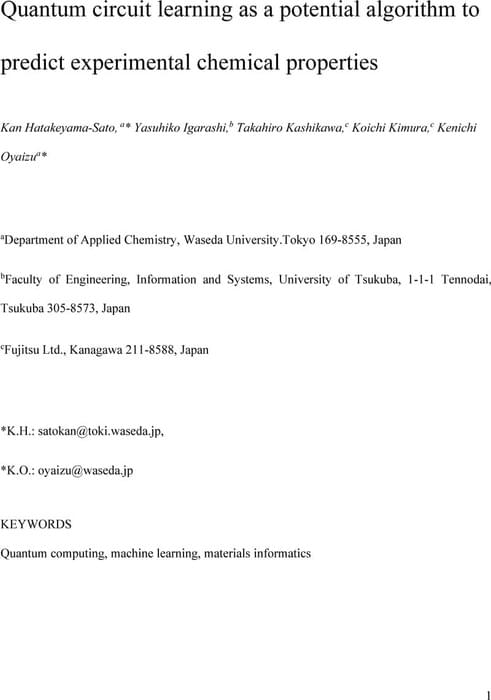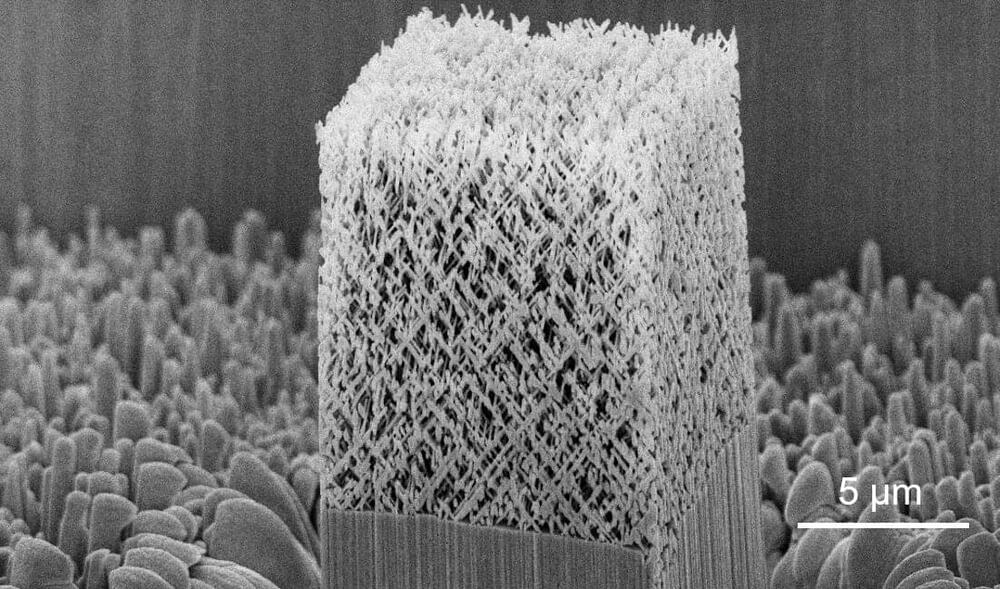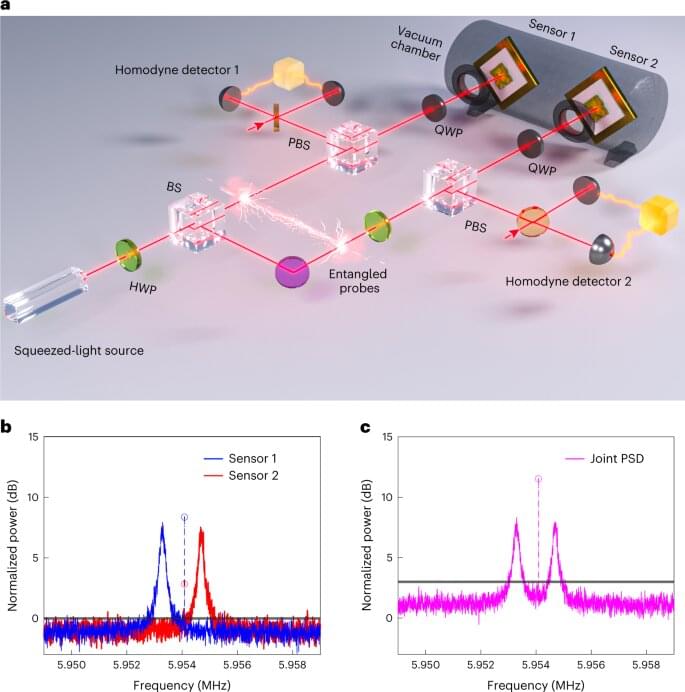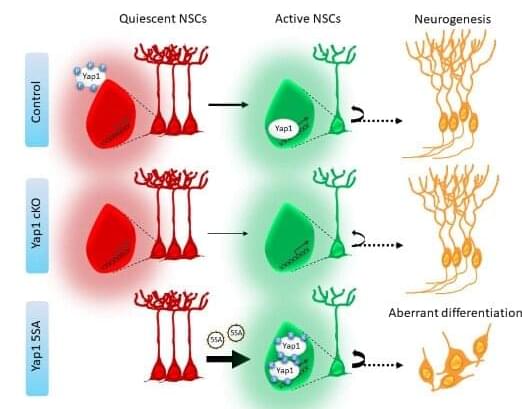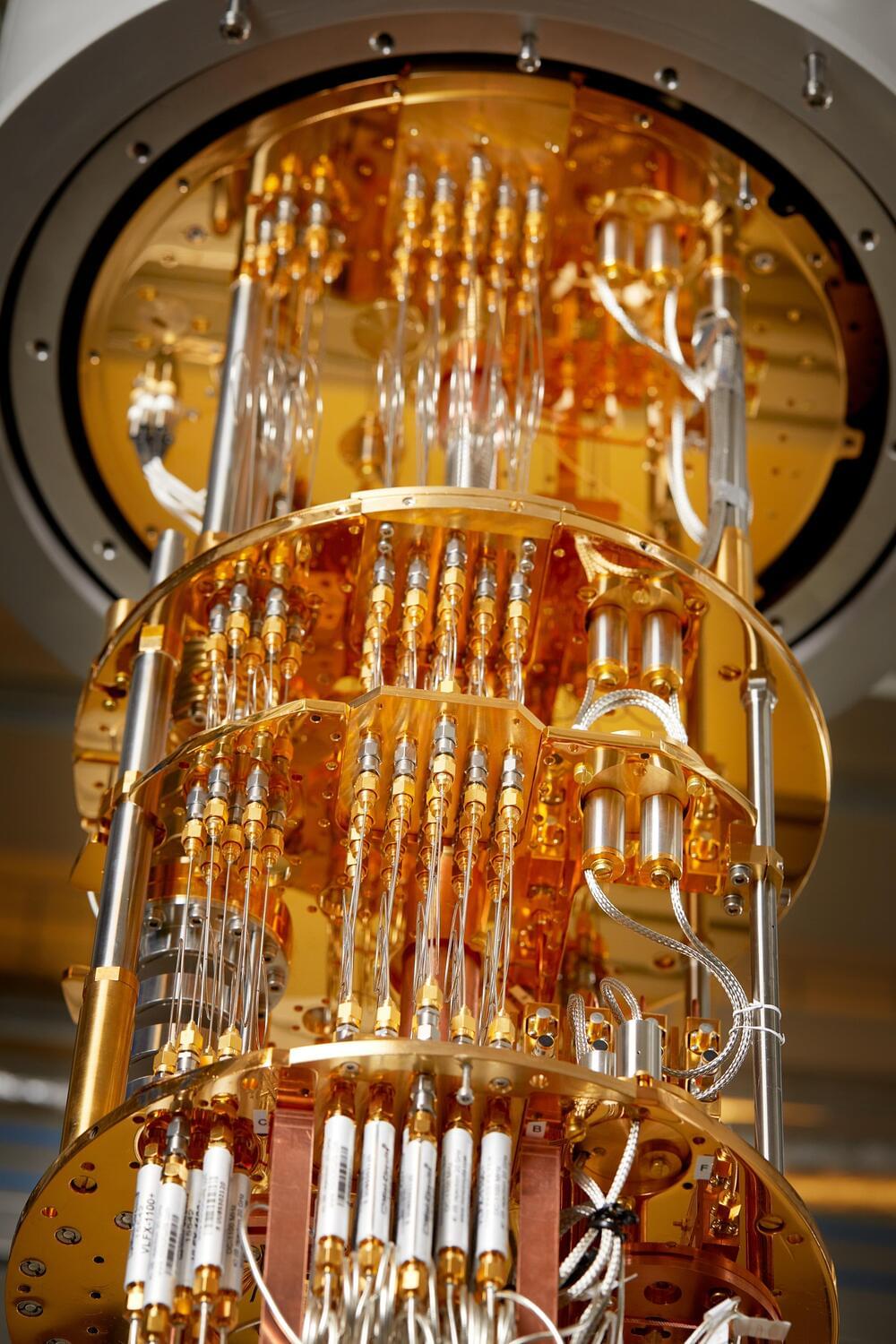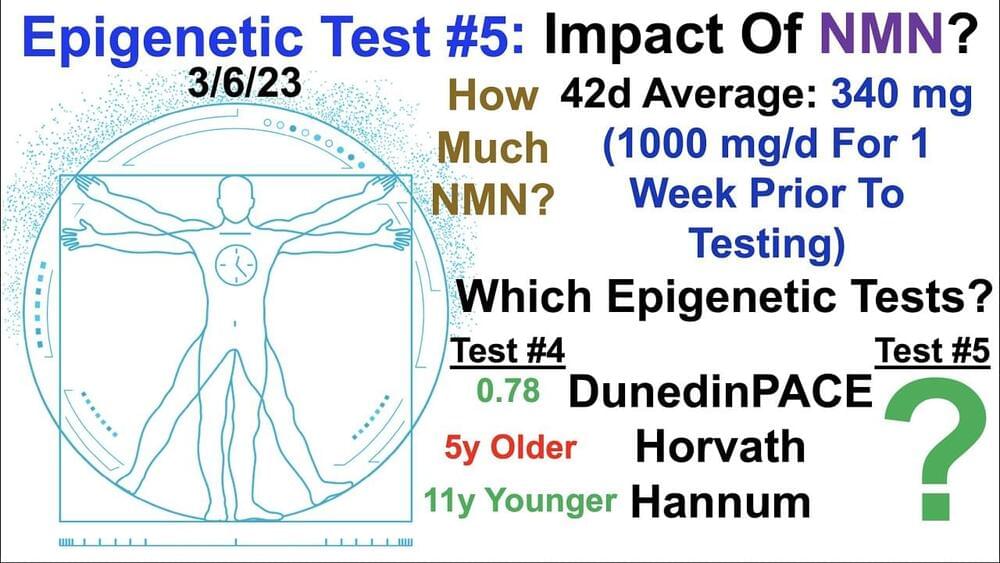Apr 23, 2023
Quantum circuit learning as a potential algorithm to predict experimental chemical properties
Posted by Dan Breeden in categories: chemistry, information science, quantum physics
We introduce quantum circuit learning (QCL) as an emerging regression algorithm for chemo-and materials-informatics. The supervised model, functioning on the rule of quantum mechanics, can process linear and smooth non-linear functions from small datasets (100 records). Compared with conventional algorithms, such as random forest, support vector machine, and linear regressions, the QCL can offer better predictions with some one-dimensional functions and experimental chemical databases. QCL will potentially help the virtual exploration of new molecules and materials more efficiently through its superior prediction performances.
